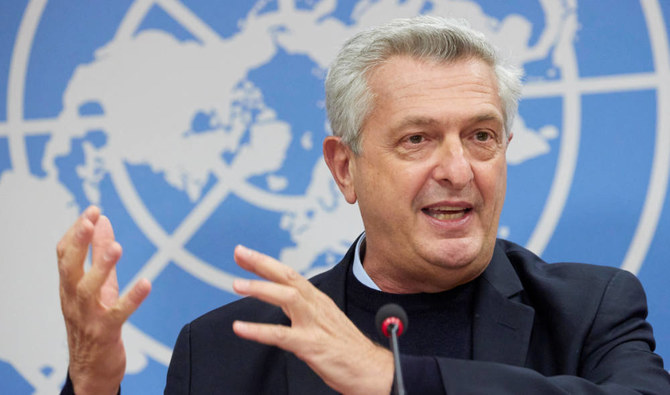DHAKA: UNHCR chief Filippo Grandi arrived in Bangladesh on Saturday to meet Rohingya refugees amid expectations that the visit will help to restart talks over their repatriation.
Bangladesh is host to more than 1 million Rohingya refugees who fled violence and persecution in neighboring Myanmar, the majority of whom have been living in congested camps at Cox’s Bazar, a fishing port in the country’s southeast.
To ease pressure on the overcrowded border camps, officials want to eventually transfer 100,000 refugees to Bhasan Char — an island settlement in the Bay of Bengal several hours’ journey away from the mainland — and have moved about 30,000 Rohingyas since the end of 2020.
Though Bangladesh and Myanmar promised in April 2018 to proceed with safe, voluntary, and dignified repatriations of the Rohingyas, the commitment has yet to become a reality.
Grandi, whose last visit to the South Asian country was in 2019, will meet with Rohingya refugees “to discuss their needs, challenges and hopes for the future,” the UNHCR said in a statement. He will also “highlight the need for sustained international support” during his meetings in Bangladesh.
“Back in Bangladesh on a comprehensive visit including exchanges with the government, partners and civil society, as well as field missions to Rohingya refugee sites,” Grandi said in a tweet.
His visit is expected to reorient focus on repatriation of Rohingya refugees back to Myanmar, discussions of which have been stalled further since Myanmar’s military took power in a coup in February 2021. Though talks between Bangladesh and Myanmar finally resumed in late January, they have yet to come to an agreement.
“At the moment repatriation for the Rohingyas is our highest priority,” Nur Khan, a prominent human rights activist in Bangladesh, said.
“We need to resume the repatriation discussion soon and the UNHCR may play a vital role here to bring all the stakeholders to the table as soon as possible.”
Bimal Chandra Sarkar, executive director of local NGO Mukti, said financial expenses to address the refugees’ needs are becoming a concern for humanitarian workers.
“Repatriation of the Rohingyas is the most burning issue for us,” Sarkar, whose organization also works in Cox’s Bazar, told Arab News.
“Bangladesh is suffering a lot for allowing these Rohingyas to live here on humanitarian grounds.”

